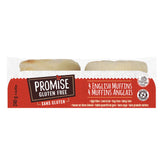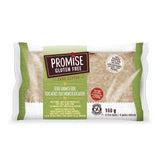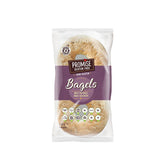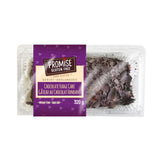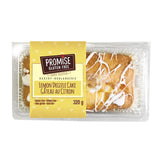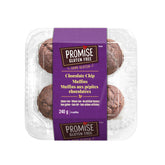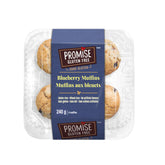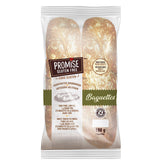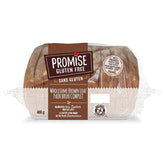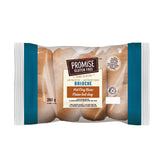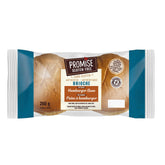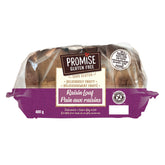Gluten-free products are increasingly tasty
Updated on 2025-09-16
Summary: Gluten-free products are getting tastier and tastier
Celiac disease and gluten intolerance are similar but different: the former is an autoimmune disease that damages the intestine, while the latter causes symptoms (bloating, digestive disorders, fatigue, headaches, skin problems) without causing damage, and disappears once gluten is removed.
Gluten is found in wheat, barley, rye, processed foods and even beer, but there are many alternatives, such as rice, quinoa, buckwheat, corn and certified gluten-free oats. Eggs are naturally gluten-free.
The diagnosis is made by the doctor, and to make life easier for those concerned, La Boite à Grains offers a wide choice of certified gluten-free products, including the Promise brand range.
1. The difference between celiac disease and gluten intolerance
-
Celiac disease An autoimmune disease in which gluten damages the intestine. Symptoms persist even after gluten has been eliminated.
-
Gluten intolerance Not an autoimmune disease. There are symptoms (digestive, fatigue, headaches, pain, skin rashes), but no intestinal damage. Once gluten has been removed from the diet, symptoms disappear.
2. Common symptoms
-
Digestive disorders: bloating, diarrhea, constipation, abdominal pain.
-
Fatigue, anemia, headaches.
-
Bone and joint pain.
-
Skin problems (itching, rashes).
3. Foods containing gluten
-
Cereals: wheat, kamut, barley, rye.
-
By-products: bread, pasta, cookies, beer.
-
Processed products: sauces, cold meats, medicines (because gluten is used as a thickener).
4. Gluten-free alternatives
-
Rice, quinoa, buckwheat, corn.
-
Oats: naturally gluten-free, but often contaminated - choose certified gluten-free oats.
-
Eggs: naturally gluten-free.
5. Diagnosis and practical solutions
-
Only a doctor can diagnose celiac disease.
-
À La Boite à GrainsThe gluten-free shelves are clearly identified.
-
Brand example: Promise which offers gluten-free breads, tortillas, muffins and cakes.
About the author
Lynn Goneau, Certified Naturopath
Specialized in :
- Digestive health
- Hormonal health
- Stress and fatigue
- Memory and concentration
- Weight management
Transcription
Geneviève Gagne - Presenter 104.7FM:
Now it's time for our health column with Lynn Goneau of La Boite à Grains. We're going to talk about gluten-free products, which are increasingly tasty, but you need to know that 1% of the population in Canada is affected by celiac disease. And it's estimated that as many as one in 10 people are gluten intolerant, and I'd like to start by explaining to people the difference between being celiac and gluten intolerant, because they're not the same thing, are they?
Lynn Goneau - Naturopath of La Boite à Grains:
Indeed, Geneviève and people sometimes tend not to understand because celiac disease is really gluten intolerance. It's very similar, but it's an autoimmune disease where gluten damages the intestine, which is the opposite of when you say you have a possible intolerance, you have symptoms, but you don't have anything that damages the intestine. So it's not an autoimmune disease. On the other hand, you do have a lot of symptoms.
Geneviève Gagne - Host 104.7FM:
Let's talk about the most common symptoms of gluten intolerance and celiac disease. Are the two similar?
Lynn Goneau - Naturopath of La Boite à Grains:
Yes, in fact, the symptoms. Both are similar. But what stands out is once we've determined that we simply have an intolerance. Yes, we eliminate gluten. At that point, you're symptom-free. On the other hand, when you're celiac, even if you eliminate gluten, the symptoms often remain.
Geneviève Gagne - Host 104.7FM:
Okay, perfect.
Lynn Goneau - Naturopath of La Boite à Grains:
So digestive problems such as bloating, diarrhea or constipation. When you find yourself between the two, or often with one or the other, abdominal pain, then intestinal discomfort. Those are the big ones that always come out first. But you can also have fatigue. It can be anemia, headaches.
This is often the case with people who tell me, Lynn, that something's really wrong. I always have headaches after eating, bone pain or skin problems like itchy rashes, it's often related to what you eat, and in both cases you have to avoid products that contain it, like wheat, kamut, barley, rye, as well as products that contain it in them, like bread, pasta, cookies.
One thing we don't think about, Geneviève, is beer. Oh yes, beer, then all processed products because gluten is used in these products as a thickener. So it's the agent itself that we're intolerant to. It's often found in sauces, cold meats, even in medicines, so it's important to read labels.
Geneviève Gagne - Presenter 104.7FM:
Yes, it's crazy to see how complex intolerance or celiac disease can be, because there are so many of them, and in everything. Fortunately, there are more and more gluten-free products, but it's still complex. It's complicated.
Lynn Goneau - Naturopath of La Boite à Grains:
Yes, and no. When you know, then you can, as you say, turn to the products. Yes. And there are foods that are quite simple to work with. If we're talking about rice, quinoa, buckwheat and corn, they can easily replace all the cereals that contain gluten. There are choices, there are great alternatives.
Geneviève Gagne - Presenter 104.7FM:
Do oats contain gluten?
Lynn Goneau - Naturopath of La Boite à Grains:
Oats are gluten-free, however. And if you're intolerant, it's okay to eat oats. But if you're celiac, you have to be careful because oats are bagged or canned in a factory where other products may be contaminated or contain gluten. And that's when it's trickier for people with celiac disease, but oats are sold in bags. It says gluten-free because it was produced in a gluten-free factory. So there's no danger.
Geneviève Gagne - Presenter 104.7FM:
Let's talk about eggs. Do they contain gluten?
Lynn Goneau - Naturopath of La Boite à Grains:
In fact, eggs are not. And I'm often asked this question because hens' diets, which often include compounds containing gluten, are digested by the hen. So eggs are gluten-free after all.
Geneviève Gagne - Host 104.7FM:
Now how do I know if I'm only gluten intolerant or if I have celiac disease?
Lynn Goneau - Naturopath of La Boite à Grains:
Diagnosed by the doctor, then it's usually quite clear.
Geneviève Gagne - Presenter 104.7FM:
Are there any products you recommend more than others?
Lynn Goneau - Naturopath of La Boite à Grains:
What's the fun in La Boite à Grains, is that on each shelf, there are big red banners. It says that all the food on that shelf is gluten-free. Okay, there are lots and lots and lots and lots of them. Now when you have a choice, there's another company I really like to work with called Promise. It's a young company founded in Ireland. It's really inspired by the strong demand for gluten-free products. They have a complete range of breads, tortillas, muffins and cakes. So, really, you have a lot of choice.


